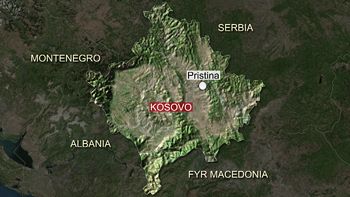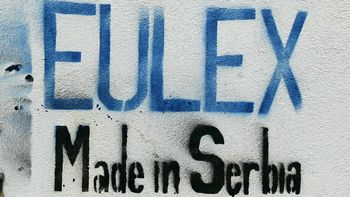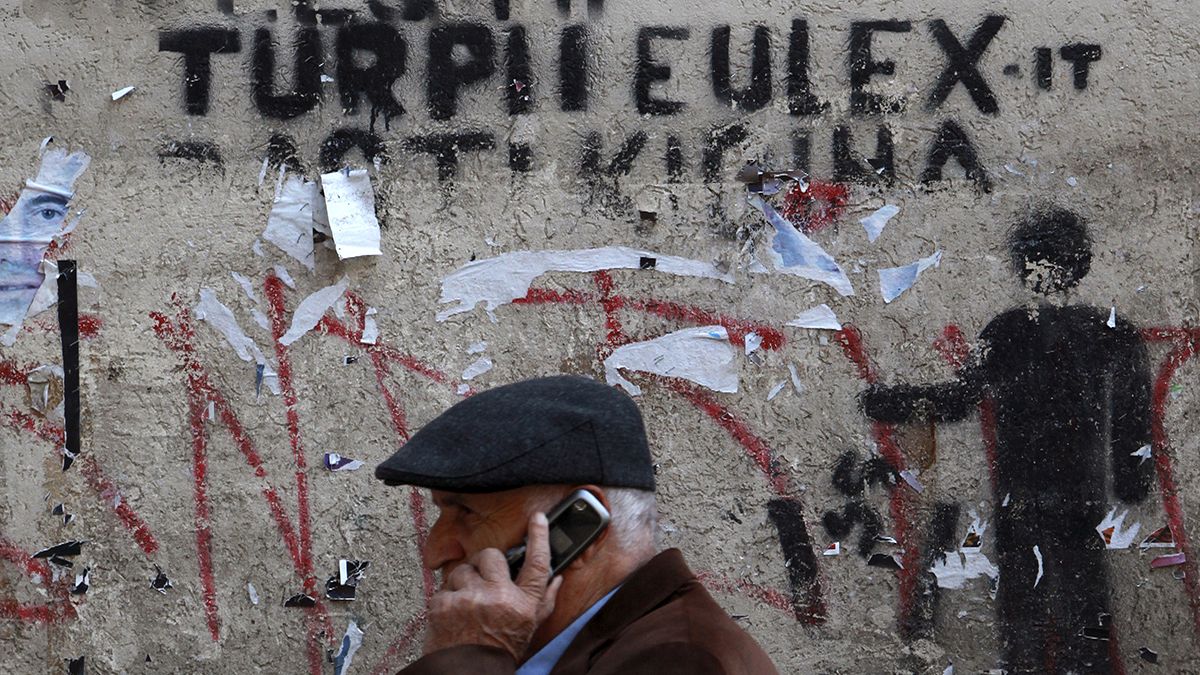The EU has failed to lay the foundations for fighting corruption in Kosovo, a report has concluded.
Law professor Jean-Paul Jacqué said corruption was ‘omnipresent’ in the region and Kosovo’s judiciary incapable of meeting the challenges of organised crime.
Mr Jacqué made the comments in his report on a scandal involving EULEX, the EU’s mission to establish rule of law in Kosovo.
Whistleblower Maria Bamieh last year accused EULEX of covering up a case of corruption in its own ranks.
In his conclusions Mr Jacqué criticised EULEX over how it handled the allegations but cleared it of being involved in corruption.
 EULEX whistleblower Maria Bamieh
EULEX whistleblower Maria Bamieh
Bamieh, who is taking EULEX, the Foreign Office and others to an employment tribunal, claimed Jacqué’s report contained “serious inaccuracies”.
EULEX, which costs 111-million euros a year, was set up in 2009 to help Kosovo along the road to EU integration.
Mr Jacqué said despite the establishment of EULEX the situation around corruption and organised crime in Kosovo remained “deeply worrying”.
“With corruption omnipresent, the judicial sector is not excluded,” wrote Mr Jacqué. “This culture of corruption is an important argument for the defence in criminal trials and, according to several judges, it is common practice for the alleged corruption of judges or prosecutors to be mentioned in court.
“Time is needed to establish and judge a case of corruption, especially when it has political ramifications. Public opinion is keen to see a swift improvement in the situation. The necessarily protracted nature of the judicial process could not but fuel scepticism in public opinion and the events leading to this report have increased that scepticism dramatically, not least because those seeking the mission’s departure seem to have used them to their own political ends.
“The mission has not yet achieved its main objective as regards the fight against corruption. While total eradication of corruption would have been impossible, it should nevertheless have been possible to gradually lay the foundations of a system capable of fighting corruption.
 EULEX began its Kosovo mission in 2009
EULEX began its Kosovo mission in 2009
“Progress has certainly been made thanks to EULEX and critics of the mission should ask themselves what things would be like now without the work it has done. “On the other hand, it is clear that, in the long run, if EULEX remains for an indefinite period, this will inevitably be viewed by the local authorities as a colonial-type phenomenon.”
With EULEX’s mandate in Kosovo set to expire on June 14, 2016, questions are already being asked about its future.
Andrea Capussela, who has written a book on corruption in Kosovo, told EU Observer that Jacqué’s report could mark a policy shift within the EU.
“I wonder whether the EU can make the shift, because if EULEX is to be given real teeth, it would require a change of approach at the highest levels in Brussels and because Kosovo’s elite will fiercely resist a new EULEX mandate in order to protect its criminal interests.
“Whether EULEX will be reformed or withdrawn, its overall performance over the past seven years ought to be rigorously audited.
“Drawing lessons from the Kosovo precedent and holding those responsible for its failure to account are the necessary first steps to equip the EU with the capacity to deal with other weak and failing states near its borders.
“If the Russian aggression ceases in Ukraine, it, like Kosovo will require outside help to reform its political-economic system. The stakes in Ukraine are even higher and the EU can scarcely afford to repeat the mistakes which EULEX made.”
 Graffiti in Kosovo
Graffiti in Kosovo
Artan Canhasi, from the Kosova Democratic Institute, a branch of Transparency International in Kosovo, said: “We think that instead of increasing the capacities of local rule of law institutions, EULEX has been spending a tremendous amount of energy dealing with internal issues. The latest report from Jean-Paul Jacque is just that – a waste of energy into the wrong direction.
“In addition, since its establishment, EULEX has not managed to install rule of law in Kosovo.
“These two issues have led to a significant drop of trust from the public opinion.”
Transparency International released a worldwide index looking at perceptions of corruption. Kosovo scored just 33 out of 100, with zero being highly-corrupt.
Federica Mogherini, the EU’s foreign affairs chief, said: “In line with my promise to ensure maximum transparency, I have sent the [Jacqué] report to the European Parliament and the EU Member States. We are also making the report public.
“The services are studying the report carefully and are looking at the best ways to address the recommendations contained in it.”
